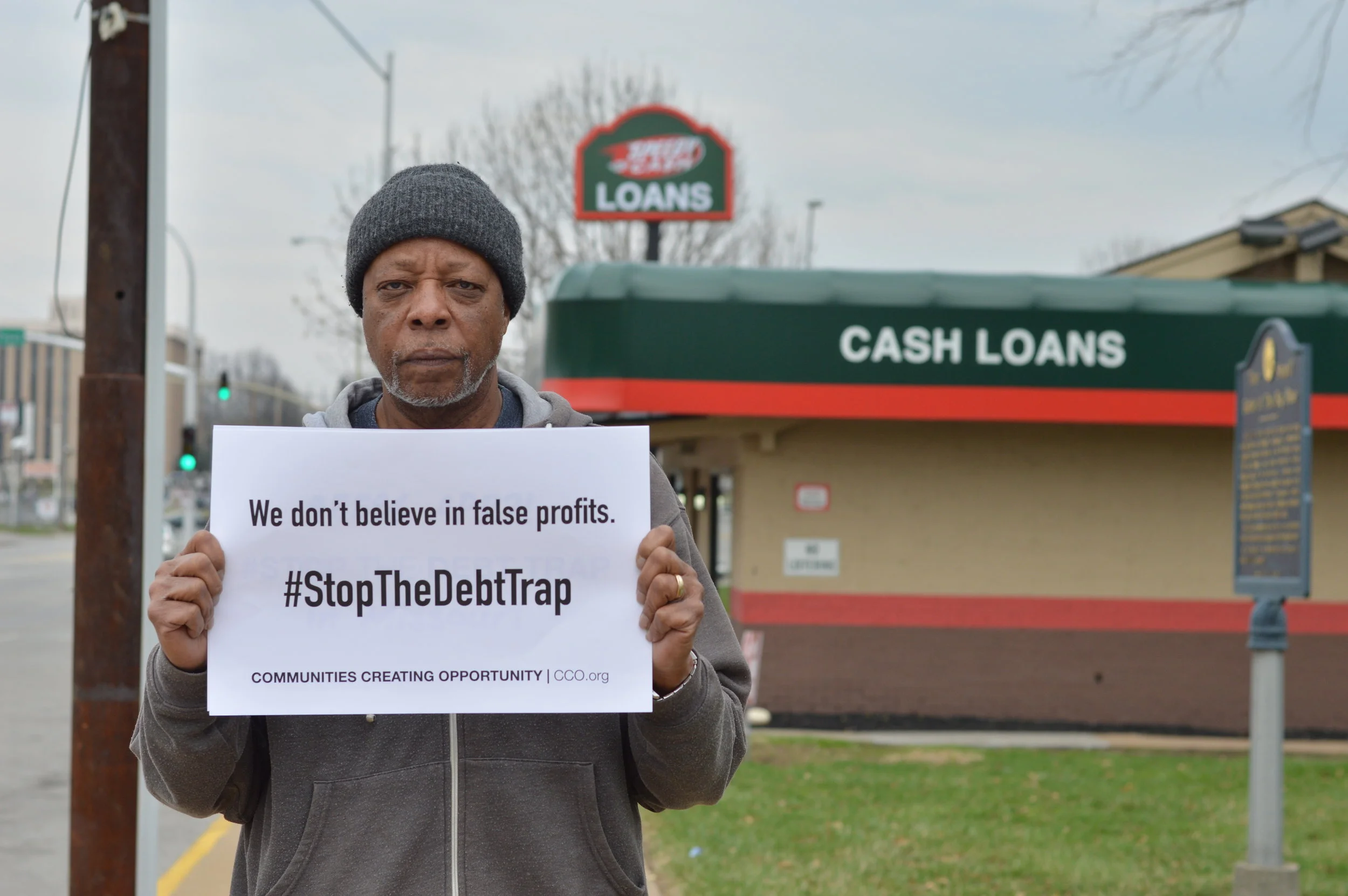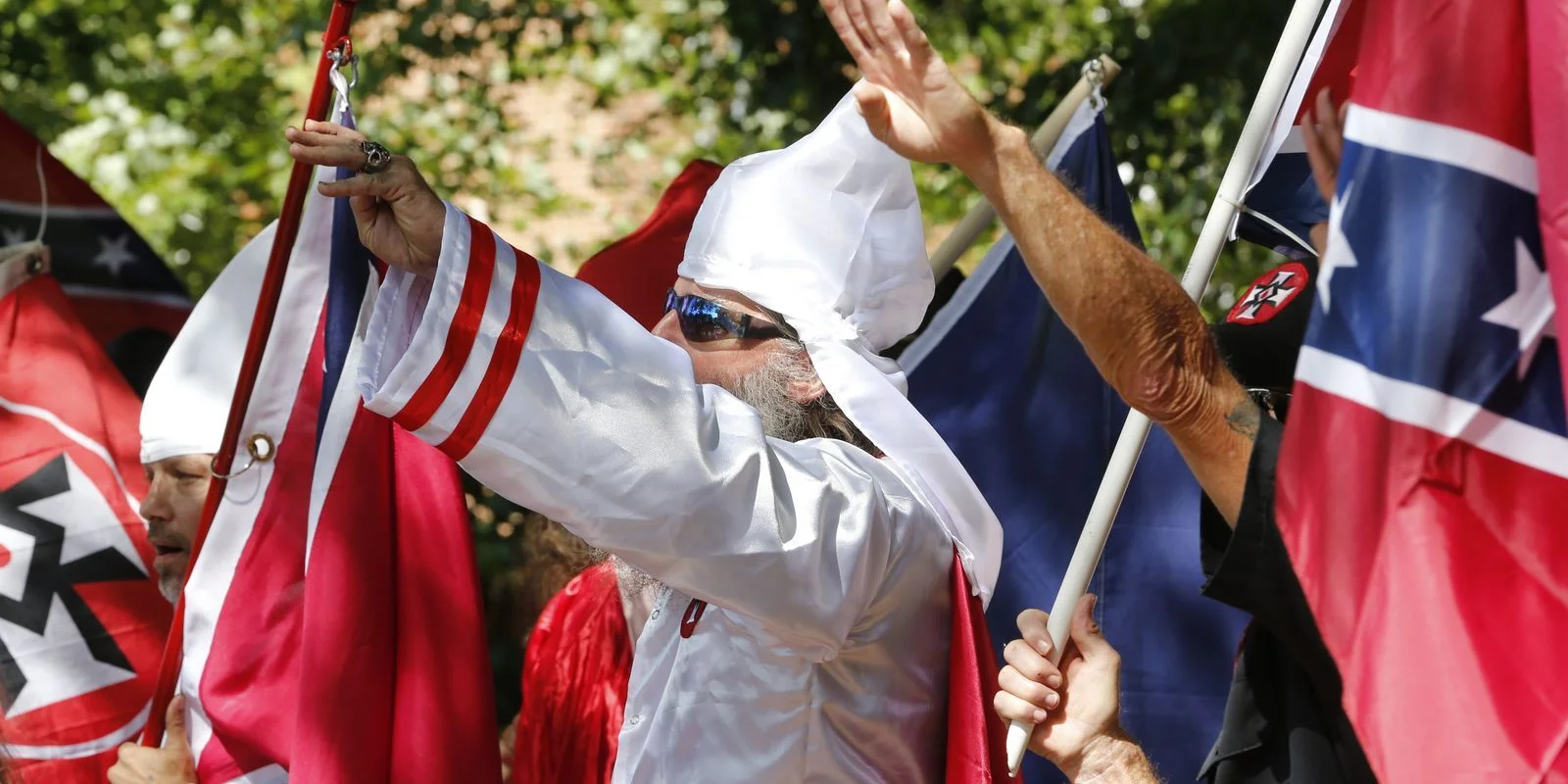My father grew up in St. Louis. As a college student he was actively involved in integrating lunch counters in Kirksville, Missouri. Interestingly, he and a close friend were headed to Selma, Alabama, to participate in the 1964 civil rights march but never made it because the bus leaving from Kirksville was full and had no seats for them.
My parents' struggle and the sacrifices of many who followed Dr. King shaped the course of my life even before I was aware of its impact. Growing up a few miles from Ferguson, Missouri, in St. Louis County, I benefited from integrated schools and had many options to study, shop, and eat.
And yet, today I realize that while we have progressed tremendously in the past 50 years there is still great need for courageous leaders to advocate for justice. This is not just a race issue; it's a human issue and a faith issue.
Dr. King followed in the footsteps of the Biblical prophets who were spokespersons for God, called to expose oppression and collective unrighteousness—or injustice.
In the Biblical text the prophet Isaiah in chapter 49 verse 6 says, “I will give you as a light to the nations, that my salvation may reach to the end of the earth.”
God called Isaiah to be uncompromisingly committed to justice for all, not just the Israelites.
Isaiah, like other Biblical prophets, exposed the sinful practices and polices that exploited and oppressed masses of people that religious and political leaders were tasked with serving.
Biblical prophets called for broad social reform, not just individual betterment for a few.
They afflicted the comfortable by challenging religious and political regimes to align with God’s greater good.
Interesting, although we do not know the name of Isaiah’s wife we do know she was a prophetess, as seen in Isaiah 8:3. So both men and women prophesied and committed themselves to justice for all.
In this scripture Isaiah speaks to Israelites who are exiled and scattered around the region and calls them to glorify God even in their oppression and exile. Yet Isaiah complains that despite all his efforts no one listens. He is deeply despised and even hated by many in power.
Maybe you’ve felt despised and discouraged after this past year’s political season. Maybe you’ve wondered if our work for social, economic, and political justice is worth it. Well, you’re not alone. Even Dr. King needed encouragement through the movement.
On Aug. 28, 1963, Dr. King gave his famous “I Have a Dream” speech for jobs and freedom. But he might have never delivered that message the way he did if not for some encouragement from gospel legend Mahalia Jackson. She sang at the Lincoln Memorial before Dr. King’s address. Midway during his speech, she said: “Tell ’em about the dream, Martin! Tell ‘em about the dream!” King pushed his manuscript off to the side and preached from his heart. He told them them about the dream.
Today, as the mother of 3 young children, I still have a dream that little black and brown boys and girls side by side with little white boys and girls will have equal access to excellent schools and health care so they can become world changers and history makers. I pray that they are judged not by the hoodies they wear or the natural texture of their hair, but by the content of their character. I write today because I believe there are many who are willing to keep working for this dream.
So, as people of faith, where do we go from here?
First, we serve others. Dr. King once said, "Life's most persistent and urgent question is: 'What are you doing for others?'" Each year, Americans across the country answer that question by coming together on the King holiday to serve their neighbors and communities. It's an opportunity for Americans from all walks of life to work together. Just as the King holiday is a day on, not a day off, our service must continue throughout the year, especially for children and those most in need.
Second, we must learn the facts to know the injustices that still exist today in our communities.
For example, education in urban America often is still separate and unequal:
Racial Disparities in High School Dropout Rates
- Half of the nation’s African American and Latino students are dropping out of high school, with the most severe problems being in segregated, high-poverty schools.
- Of schools with minority populations of at least 50%, half have dropout rates over 40 percent.
- Of schools comprised of at least 90% minority students, two-thirds have dropout rates of more than 40%.
Racial Disparities in Incarceration and Criminal Sentencing
- From 1980 to 2008, the number of people incarcerated in America quadrupled from roughly 500,000 to 2.3 million people.
- African Americans now constitute nearly 1 million of the total 2.3 million incarcerated population.
- African American males are incarcerated at 5 times the rate of whites.
(Sources: NAACP.org, http://www.sentencingproject.org)
These are just two examples of civil rights issues of today. We must know the facts and continue to work toward justice.
Third, we must lift our collective voice. We have power together as a community to vote, run, and lead. We must not only cast our vote, but also ensure everyone has access to the vote regardless of their background. We must know and talk with our elected officials, government and community leaders, about the challenges of our time. Together we can make our community and nation one that provides an opportunity for every person to thrive. In particular, we must organize and be advocates for those who are voiceless by being courageous enough to run for political office, serve on boards and commissions, and negotiate to help create and implement policies for a more equitable society.
Dr. King said, "Oppressed people cannot remain oppressed forever. The yearning for freedom eventually manifests itself, and that is what has happened to the American Negro. Something within has reminded him of his birthright of freedom, and something without has reminded him that it can be gained."
Everyone can make a difference. And, this is where community organizing with movements like Communities Creating Opportunity (CCO) is critically important. Conditions in our community are shaped by economic, social, and political power. Therefore, improving community conditions requires building collective people power (not just individual) to develop solutions, negotiate policies, and hold leaders accountable. Organized people of faith have long been the foundation of powerful civil rights, women’s, immigrant, labor, and poverty movements throughout history.
Finally, we must be willing to take non-violent direct action. You may ask: "Why direct action today? Why sit-ins, marches, protests and so forth? Isn't negotiation a better path?" Here's how Dr. King answered that question in his letter from a Birmingham jail.
"Nonviolent direct action seeks to create such a crisis and foster such a tension that a community which has constantly refused to negotiate is forced to confront the issue. It seeks so to dramatize the issue that it can no longer be ignored..."
May we all have the courage to organize for non-violent direct action, as we feel called. May we seek to bring good news to the poor and deliverance to the oppressed, and not bow to the desires of those in power simply to avoid making waves. May we courageously stand for justice, kindness, and humility with God.
And when we do, here’s the promise from God to prophet Isaiah and to us today in chapter 49 verse 7.
Thus says the Lord, the Redeemer of Israel and his Holy One, to one deeply despised, abhorred by the nations, the slave of rulers, “Kings shall see and stand up, princes, and they shall prostrate themselves, because of the Lord, who is faithful, the Holy One of Israel, who has chosen you.”
Let me end with this.
As a young girl I often wondered why my parents and teachers insisted I know African history as a supplement to Biblical and American history. I was often more interested in other things like my friends and sports. What they taught me is that the human race is inextricably connected in all communities across time and geography. So we cannot sit idly by in Kansas City and not be concerned about what happens in Washington, D.C. We cannot ignore what happens in north Kansas City because we live south of the river. We cannot isolate ourselves from poverty because, as Dr. King wrote, "Injustice anywhere is a threat to justice everywhere. We are caught in an inescapable network of mutuality, tied in a single garment of destiny. Whatever affects one directly affects all indirectly."
May the prophet Isaiah’s and Dr. King's courage challenge each of us today toward action as we serve others, learn the facts, lift our voices, and take action.
Lia McIntosh is a coach, speaker, writer, and community advocate in Kansas City. She is an ordained United Methodist minister and specializes in urban ministry and leading churches to deeply connect with their communities.























